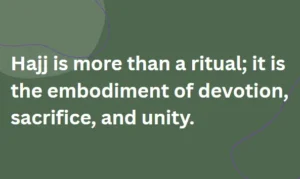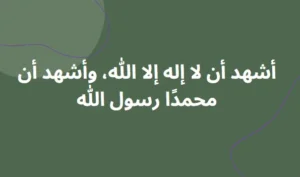Surah Al-Fatiha, often referred to as “The Opening,” is the first chapter (Surah) of the Quran. It is one of the most important chapters in Islamic faith, recited in every unit of the Muslim prayer (Salah), and is considered to encapsulate the essence of the entire Quran. Despite its brevity, with only seven verses, its depth is profound and its message timeless. This blog takes a closer look at the spiritual, theological, and philosophical insights embedded in Surah Al-Fatiha, highlighting its significance for Muslims worldwide.
1. The Title of the Surah: “The Opening”
The title “Al-Fatiha” means “The Opening” or “The Opener.” It is aptly named as it serves as the opening chapter of the Quran, setting the tone for all that follows. However, it is also a key to understanding the Quran’s messages, opening doors to deeper reflections on life, faith, and spirituality. Surah Al-Fatiha begins with a prayer for guidance, helping the reader approach the Quran with the right mindset, humility, openness, and a desire for clarity.
2. A Sacred Invocation: “In the Name of Allah, the Most Gracious, the Most Merciful”
The first verse of Surah Al-Fatiha, “In the name of Allah, the Most Gracious, the Most Merciful,” invokes the names of Allah (God) and His supreme attributes. By starting with this phrase, Muslims remind themselves that every action, whether it be reading the Quran, performing prayer, or engaging in daily tasks, is undertaken with the blessings and mercy of Allah.
The mention of Allah’s attributes “Ar-Rahman” (the Most Gracious) and “Ar-Rahim” (the Most Merciful) serves as a constant reminder of the infinite compassion and kindness of the Creator. These two qualities highlight the central theme of Islam: that God’s mercy surpasses His wrath, and no matter how far a person has strayed, His mercy is always accessible to those who seek it.
3. Gratitude and Acknowledgment: “Praise be to Allah, Lord of all the worlds”
The second verse, “Praise be to Allah, the Lord of all the worlds,” emphasizes the sovereignty of Allah over the entire universe. This verse encourages believers to recognize the Creator’s dominion over everything that exists, the seen and the unseen. The word “worlds” (in Arabic, ‘Aalameen) encompasses everything in creation, from humans and animals to the heavens and the earth.
By acknowledging Allah as the “Lord of all the worlds,” this verse calls for gratitude and a recognition of Allah’s majesty. It reminds us that everything we have, from our blessings to our very lives, is a gift from Allah. It is a call for humility, to remember that we are part of a grander design, and to show gratitude for everything that has been bestowed upon us.
4. A Call for Justice: “Master of the Day of Judgment”
The verse, “Master of the Day of Judgment,” emphasizes the ultimate truth that every individual will be held accountable for their actions in the Hereafter. This verse reminds Muslims that life on earth is temporary, and the Day of Judgment is the moment of ultimate reckoning.
The idea of a final judgment underscores the belief in divine justice—Allah will reward the righteous and punish those who have evoked His anger or strayed from the path of righteousness. This verse encourages believers to reflect on their actions, seek repentance, and strive to live a life that is pleasing to Allah, knowing that they will one day be judged by Him.
5. The Essential Request: “You Alone We Worship, and You Alone We Ask for Help”
In the fifth verse, “You alone we worship, and You alone we ask for help,” the believer affirms their exclusive devotion to Allah. Worship here is not limited to acts of formal prayer, but extends to all aspects of life, every action, every thought, and every intention is offered to Allah alone.
This verse also highlights the central Islamic belief in monotheism (Tawhid), acknowledging that Allah is the only one worthy of worship and the only one from whom help is sought. It is a declaration of dependence on Allah’s guidance and mercy in every aspect of life. It emphasizes that no one other than Allah can provide the guidance, support, and strength needed to overcome the challenges of life.
6. The Plea for Guidance: “Guide Us to the Straight Path”
The verse, “Guide us to the straight path,” is one of the most important requests made in Surah Al-Fatiha. It encapsulates the fundamental human need for divine guidance. The “straight path” refers to the way of righteousness, truth, and justice, which leads to eternal success in the Hereafter.
This verse acknowledges that while human beings are capable of choosing their paths, they are also prone to error and misguidance. Therefore, they seek Allah’s guidance to remain on the correct path, avoiding distractions and pitfalls that lead away from Him. The request is an act of submission and humility, acknowledging that only Allah can truly guide individuals to what is best for them in this life and the next.
7. The Path of the Righteous: “The Path of Those Upon Whom You Have Bestowed Your Grace”
The final verse, “The path of those upon whom You have bestowed Your grace, not of those who have evoked Your anger or of those who are astray,” serves as both a supplication and a reminder of the importance of staying on the path of righteousness. This verse distinguishes the “straight path” from the paths of those who have gone astray, those who have earned Allah’s anger, or lost their way.
Muslims are asking to be among those who have received Allah’s grace, such as the Prophets, the righteous, and the pious. The verse highlights the need for continuous self-reflection, urging believers to avoid the paths of arrogance, heedlessness, or hypocrisy, which lead to misguidance and spiritual destruction.
8. Surah Al-Fatiha’s Practical Implications
Surah Al-Fatiha is not merely a prayer for guidance; it is a roadmap for living a life of faith, submission, and mindfulness. It teaches several core principles:
- Humility: Acknowledging Allah’s sovereignty over all things.
- Gratitude: Recognizing that all blessings come from Allah.
- Monotheism (Tawhid): The exclusive worship of Allah and reliance on Him alone.
- Accountability: A reminder of the Day of Judgment and the importance of living a righteous life.
- Continuous Seeking of Guidance: The need to consistently ask Allah for guidance in all aspects of life.
The beauty of Surah Al-Fatiha lies in its simplicity. It covers the core concepts of Islamic belief—faith, guidance, submission, and gratitude—while providing a structure for daily supplication and reflection. Reciting it in every unit of prayer is a constant reminder of one’s dependence on Allah and the need for His mercy and guidance.
All Titles of Surah Al-Fatiha
Surah Al-Fatiha, being a highly revered chapter in the Quran, has several other names and titles, each reflecting different aspects of its significance and content. Here are some of the other names of Surah Al-Fatiha:
- Al-Fatiha (The Opening): This is the primary name, signifying that it is the opening chapter of the Quran.
- Umm al-Kitab (The Mother of the Book): This name emphasizes Surah Al-Fatiha as the essence and summary of the Quran, encapsulating its core themes.
- Al-Sab’ al-Mathani (The Seven Oft-Repeated Verses): This refers to the seven verses of the Surah, which are recited repeatedly in every unit of the Muslim prayer (Salah).
- Al-Shifa’ (The Cure): Surah Al-Fatiha is often regarded as a healing chapter, as it is believed to bring spiritual and physical healing when recited with sincerity and faith.
- Al-Kafi (The Sufficient): This name highlights how Surah Al-Fatiha serves as a complete supplication that encompasses all of a believer’s needs, making it sufficient for guidance and connection with Allah.
- Al-Waqiya (The Protector): This name reflects the protective power of Surah Al-Fatiha, as it is believed to safeguard the reciter from harm and negative influences.
- Al-Dua (The Supplication): Since the Surah is a prayer for guidance, mercy, and protection, it is also called “The Supplication.”
- Al-Ma’ani (The Meaning): This name refers to the deep meanings contained within the Surah, as it contains both a request for guidance and an affirmation of Allah’s sovereignty, mercy, and majesty.
- Al-Nur (The Light): Surah Al-Fatiha is sometimes called “The Light” because it provides spiritual illumination, guiding the heart and mind of the believer towards righteousness.
- Al-Tawbah (The Repentance): This name reflects the Surah’s role in guiding individuals to repentance, seeking Allah’s mercy and forgiveness.
These various names demonstrate the multiple dimensions of Surah Al-Fatiha, from its spiritual significance and healing properties to its role as a comprehensive and essential prayer in Islam. Each name highlights a different aspect of its power, meaning, and function in the life of a Muslim.
Surah Al-Fatiha: A Timeless Source of Reflection
Surah Al-Fatiha is far more than just an introductory chapter to the Quran. It is a complete prayer that encapsulates the central themes of the Islamic faith: submission to Allah, gratitude, reliance on divine guidance, and preparation for the Hereafter. Its messages are profound, relevant, and applicable to all aspects of life. As Muslims recite it in prayer, they are reminded of their relationship with Allah and the need to seek His mercy, guidance, and forgiveness.
May the reflections on Surah Al-Fatiha deepen our understanding, strengthen our faith, and inspire us to live lives that are pleasing to the Creator.






